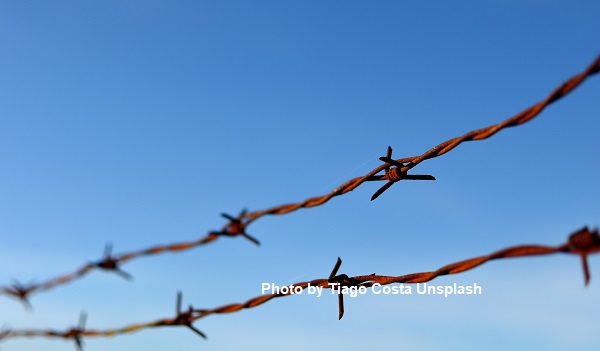Frontex has recorded “almost twenty” incidents of violations of EU law at the Lithuanian border with Belarus. Dire conditions continue for people “pushed around” at the border. Reports suggest facilities housing migrants in Lithuania have improved, partially thanks to 30 million euro in extra funding from the EU. Twelve EU member states including Lithuania have penned a letter asking for the EU to fund border fencing and “adapt the legal framework” to deal with migratory “emergencies”.
On 8 October, a Frontex Fundamental Rights Monitor revealed that at least 14 Serious Incident Reports concerning violations of fundamental rights had been lodged at the Lithuanian border with Belarus. A few days later, Frontex chief Fabrice Leggeri confirmed that between 17 and 20 such reports had been made. Rustamas Liubajevas, chief of the Lithuanian State Border Guard Service (VSAT), said Lithuania has not recorded any cases of “legal violations”, likely because the country’s domestic law was recently amended to allow officials to push people back without assessment of their protection needs. Leggeri said there were “questions” about compatibility of the revised Lithuanian law with EU legislation, but declined to comment on whether Frontex would withdraw from the country. The next day, the VSAT chief reported that Leggeri saw “no need” to terminate Frontex operations.
Civil society groups continue to seek to assist people stranded along the EU border as a result of alleged “hybrid warfare” initiated by Belarus. NGO Human Rights Monitoring Institute on 6 October reported a newly-discovered group of people “starving and freezing” near the Lithuanian border after being pushed back. The organisation has challenged the recent legal amendments that only allow asylum seekers to lodge applications at official checkpoints and require people to carry identity documents. They point out that people are prohibited from reaching the official checkpoints via Lithuanian territory and that most have their documents confiscated by the Belarus.
Conditions in Lithuanian asylum camps that were the subject of a damning ombudsman report in August are now much improved, according to the Lithuanian Red Cross. The interior ministry has now deemed the report, which deemed accommodation to amount to inhumane treatment, “outdated” and the Red Cross confirms that the situation has improved “dramatically”. Nonetheless, access to psychological assistance and medical care remains lacking. Lithuania has received 29.6 million euro so far from the EU to help “deal with the irregular migration crisis” and “ensure the provision of basic services to migrants”. The funding has according to authorities been spent on accommodation services, security at the migrant camps, food and education, as well as reception and detention facilities and asylum procedures.
The interior ministers of Lithuania, Poland, Latvia, Hungary, Czech Republic, Austria, Bulgaria, Cyprus, Denmark, Greece, Estonia, and Slovakia have written a letter to the European Commission calling for the “adaptation of the EU legal framework to new realities”. The focus of the letter is revision of the Schengen Border Code (SBC), and the most concrete demand is for the EU to fund border walls and fences. The signatory states say border surveillance, as the primary measure foreseen in the SBC for border policing: “does not stop persons from attempting illegal border crossings and it would therefore be useful to complement it with further preventive measures”. Some commentators have interpreted this as a call for the legalisation of “pushbacks”, or expulsions or refusals at the border that preclude the individual assessment of asylum applications. Pushbacks are prohibited under EU and international law by the principle of non-refoulement.
For further information:
- ECRE, EU Eastern Borders: Poland Ignores Commission Pressure for Frontex Deployment, Eastern States Move to “Legalise” Pushbacks, Belarus Suspends Return Agreement, October 2021
- ECRE, Editorial: Geopolitics and Death in a Field, October 2021
Photo by Tiago Costa on Unsplash
This article appeared in the ECRE Weekly Bulletin. You can subscribe to the Weekly Bulletin here.

